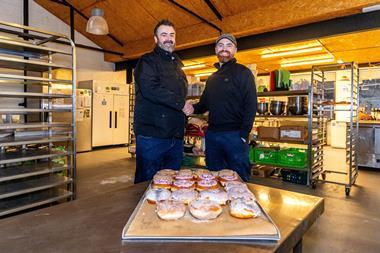
Craft bakers have highlighted the “horrendous” and “shocking” impact of energy price hikes on their businesses.
One craft bakery chain signed a new energy contract last year, which would see its energy bills rise 375% this year based on the same usage.
Another reported it was spending all its time looking at ways to trim off costs, and had no time for anything else, such as developing new products.
“Energy prices have hit very hard, we are paying out an extra £25,000 a month, and then other costs are rising too, such as minimum wage and food ingredients,” a spokesperson told British Baker. “It is horrendous and beyond our control.”
Craft bakeries had support withdrawn under the government’s Energy Support Relief Scheme as of 1 April 2023. The new Energy Bills Discount Scheme (EBDS) now only covers businesses that are deemed to be energy intensive by the government, which is identified by the company Standard Industrial Classification code, explained Karen Dear, CEO of the Craft Bakers Association (CBA).
“Despite many of our members still seeing their energy bills at least 40% higher than they were before the crisis started, they are not eligible for this scheme or further financial help, due to the government’s interpretation of an energy intensive industry,” she said.
Others in the baking industry, such as plant bakers, are covered by the new scheme. They can claim additional financial support for energy as part of the government’s EBDS, which runs until 31 March 2024.
The CBA is working closely with the Department for Business, Energy & Industry Strategy (BEIS) to push for stricter commercial energy regulations and guaranteed long-term support, Dear added.
Notably, the deputy director of BEIS, Greg Falconer, will be attending the CBA’s Business Day on 14 June for a Q&A session with members about the issues they are currently facing.
Reports from the frontline
Coughlans, which has 28 shops across South London and Surrey, has to find thousands of pounds a month just to maintain the status quo.
“We have raised our prices a bit, but all our shops trade against competitors such as Greggs or supermarkets,” said director Sean Coughlan. “We always look at ways to streamline range for efficiency, but we don’t want it to be boring or else customers won’t come.”
Others have been somewhat luckier. Sophie Gilbert director of Dorringtons, which has 15 shops across Hertfordshire, said the business signed a fixed term contract just before prices went up.
“We hope that by the time we renew the position will be better. We have had to get aggressive with waste and staffing is quite difficult, but we are very lucky compared to some,” she noted.
































No comments yet